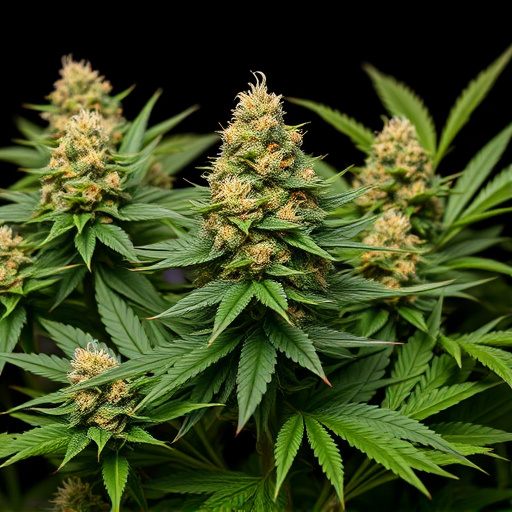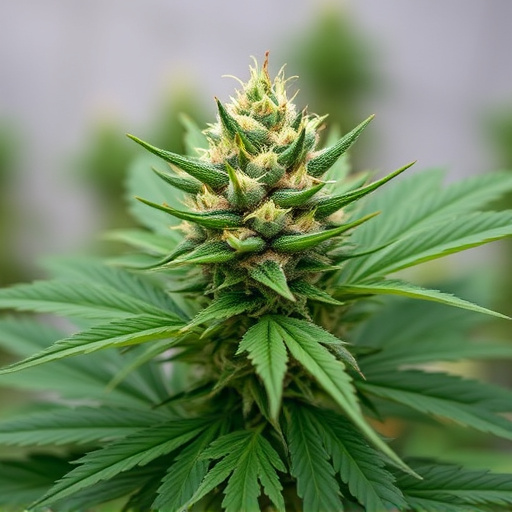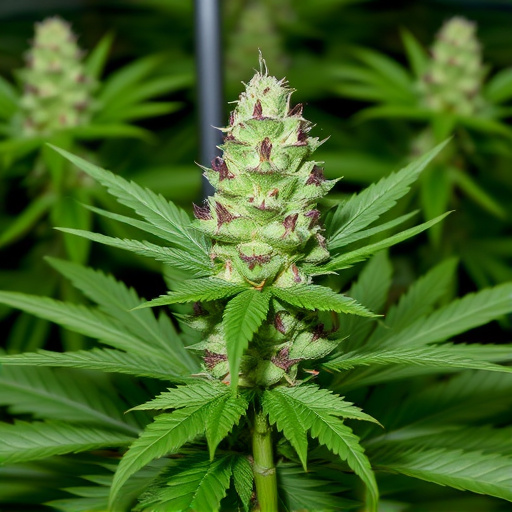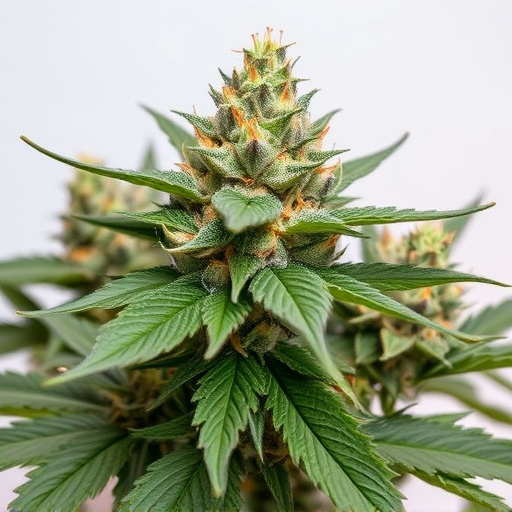While cannabis offers therapeutic benefits, heavy or frequent use may lead to adverse effects like anxiety, paranoia, cognitive issues, and respiratory problems. Personal tolerances and strain preferences are crucial for minimizing these impacts. Selecting medicinal cannabis strains with balanced THC and CBD ratios, as well as specific terpene profiles, can reduce side effects. Lifestyle adjustments including regular exercise, a healthy diet, mindfulness practices, and adequate sleep hygiene enhance overall wellness alongside cannabis use.
Cannabis can offer significant therapeutic benefits, but it’s crucial to understand and mitigate its potential negative effects. This guide explores common issues stemming from cannabis use, including cognitive impairment and anxiety. We delve into selecting specific medicinal cannabis strains known for their low THC and high CBD content to minimize side effects. Additionally, discover lifestyle adjustments and complementary practices that enhance overall wellness, ensuring a responsible and beneficial cannabis experience.
- Understanding Negative Effects of Cannabis: Common Issues and Causes
- Selecting Medicinal Cannabis Strains for Mitigating Side Effects
- Lifestyle Adjustments and Complementary Practices for Optimal Wellness
Understanding Negative Effects of Cannabis: Common Issues and Causes

Cannabis, while known for its potential therapeutic benefits, can also produce a range of negative effects. Understanding these side effects is essential for both recreational users and those employing medicinal cannabis strains for treatment purposes. Common issues include anxiety, paranoia, cognitive impairments, and respiratory problems, particularly with heavy or frequent use. The causes of these effects are multifaceted. For instance, the concentration of THC (tetrahydrocannabinol), the primary psychoactive compound in cannabis, plays a significant role. High-THC strains can induce stronger anxiety and psychosis in susceptible individuals. Additionally, method of consumption influences outcomes; smoking cannabis irritates the respiratory tract while edibles can lead to an overwhelming high due to delayed onset. Identifying personal tolerances and strain preferences is crucial for minimizing negative effects.
Selecting Medicinal Cannabis Strains for Mitigating Side Effects

When selecting medicinal cannabis strains, understanding their unique properties is key to mitigating potential side effects. Different strains have distinct ratios of THC (tetrahydrocannabinol) and CBD (cannabidiol), which play a significant role in how the body reacts to the plant’s compounds. High-CBD strains are often preferred for their potential to reduce anxiety and paranoia, common side effects associated with cannabis use. These strains can offer therapeutic benefits without inducing the intense psychotropic effects of high THC content.
Additionally, certain medicinal cannabis strains are known for their calming and sedative properties, making them ideal for managing insomnia or stress-related disorders. Terpenes, aromatic compounds found in cannabis, also contribute to strain profiles. Some terpenes have anxiolytic (anxiety-reducing) effects, while others may enhance relaxation without causing drowsiness. Choosing strains with specific terpene profiles can further customize the medicinal experience, ensuring a more pleasant and side-effect-free journey for consumers.
Lifestyle Adjustments and Complementary Practices for Optimal Wellness

For those who incorporate medicinal cannabis into their wellness routines, it’s crucial to understand that optimal results often involve more than just consumption. Lifestyle adjustments and complementary practices play a significant role in mitigating potential negative effects while enhancing overall well-being. Engaging in regular physical activity, for instance, can help regulate the body’s endocannabinoid system, which is responsible for maintaining balance and interacting with cannabis compounds. A balanced diet rich in omega-3 fatty acids, antioxidants, and vitamins can also aid in reducing inflammation and supporting overall health, thereby improving how one’s body responds to medicinal cannabis strains.
Mindfulness practices like meditation and yoga have been shown to reduce anxiety and stress levels, which can significantly impact the enjoyment and therapeutic benefits of cannabis. Additionally, adequate sleep hygiene is essential; ensuring a consistent and restful sleep schedule allows the body to repair and rejuvenate, further enhancing its ability to process and benefit from medicinal cannabis strains. Incorporating these simple yet powerful practices into one’s daily routine can help foster optimal wellness alongside cannabis use.
Cannabis can offer significant benefits for various conditions, but understanding and mitigating its potential negative effects are crucial. By selecting appropriate medicinal cannabis strains tailored to individual needs and incorporating lifestyle adjustments, it’s possible to enhance overall wellness and minimize adverse reactions. Combining knowledge of cannabis chemistry with holistic practices ensures a safer and more enjoyable experience, allowing individuals to harness the plant’s power while preserving their well-being.














